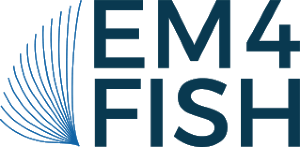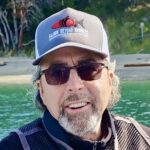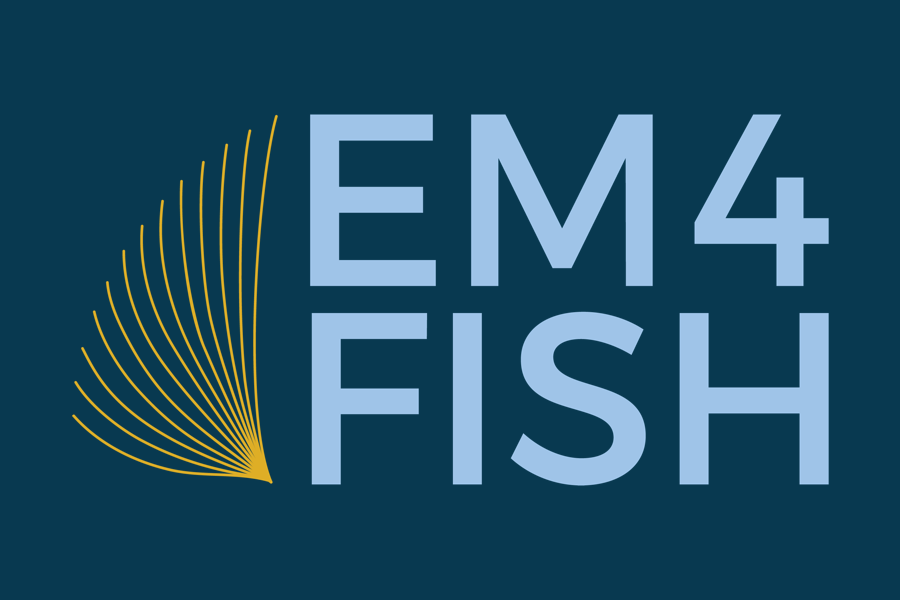At the start of this New Year, I want to acknowledge and thank all of you — the technologists, managers, agency personnel, scientists, conservationists, policymakers, fishermen* and business leaders who are driving EM innovations in a time of increasingly rapid change.
Collectively, you are expanding our understanding of what EM and fishtech — and oceantech more broadly — can include. EM isn’t just about cameras in the rigging anymore, if it ever was. The global project of monitoring, adapting and sustaining fisheries encompasses breakthroughs:
- in artificial intelligence to streamline catch data analysis;
- in satellite observations of fishing fleets to expose illegal harvesting; and
- in confirming relationships between climate-change effects and wide-scale shifts in fish distribution, to name just a few.
All these things involve electronic technologies and monitoring; all of them can move us in a hopeful direction.
At the same time (as the Nobel laureate said), you don’t need a weatherman to know which way the wind blows. The people who run fishing boats and the crewmembers on their decks represent a huge untapped resource. By profession and practice they are uniquely capable and credible as front-line stewards of the ocean. As a former fisherman myself, I know we’ll never get where we need to be unless and until we put the right tools in the hands of fishermen and enlist them as citizen-scientists. Without a doubt, deep-diving autonomous vehicles, saildrones and satellites hold enormous promise for data collection, but in the U.S. alone there are hundreds if not thousands of fishing vessels operating on any given day from San Diego to the Bering Sea and Florida to the Gulf of Maine. And what commercial fishermen do, every single moment they’re on the water, is make observations. Properly equipped and incentivized, they can generate an exponential increase in critical ocean data. So, what are the tools and sensors required, what are the priority data-sets, and where does the data need to go?
Just as importantly, what about those less-scientific, empirical observations made by fishermen? They are often logged and consistent over significant time-frames, but remain unwitnessed by the science community. How can that kind of knowledge enter the data-stream and receive due consideration? In 2022 and in years to come, I’d love to hear — and publish — your thoughts on these questions. Drop me a line.
* * *
Again, thanks to everyone who contributed to this platform in 2021. Over the past year we heard from:
- Ben Martens and Mary Hudson, on EM in the Gulf of Maine scallop fishery;
- Scott Nuzum, writing about Snap Information Technologies;
- Justin Kay, on advancing artificial intelligence for fisheries management;
- Phillip Meintzer, on Archipelago;
- Brett Alger and the team at NOAA Fisheries, with podcasts on distinct aspects of EM programs, technological capabilities, and future potential;
- Net Gains Alliance and Duke Law, with the Fishing for Data podcast series;
- Kathryn Carovano, of Saltwater, Inc.;
- Mark Hager, on strengthening EM programs with AI algorithms;
- Pablo Torralbo, of Satlink;
- Charlotte Levy, on data modernization in the western Gulf of Alaska;
- Josh Wiersma, of Integrated Monitoring, Inc.;
- Mike Wang, who’s testing EM in a California swordfish fishery; and
- Fran Karp, of Harbor Light Software.
And we’re always on the lookout for more EM-related projects, events, stories, solution providers and lessons-learned, so if you’re working in this emerging field and have something interesting to share, please let us know and we’ll set up a time to talk.
Last but not least, thanks to National Fish & Wildlife Foundation’s Electronic Monitoring and Reporting Grant Program, the Kingfisher Foundation, and Net Gains Alliance for their ongoing support.
Happy New Year, everybody!
* In keeping with the overwhelming preference of people (of all genders) who fish for a living, we continue to use the term fishermen when identifying them. We reserve “fishers,” a more-recently coined term favored by some, to describe what one EM4Fish advisor in a position to know calls “a ferocious weasel who eats backyard chickens.”
Scott Coughlin publishes EM4Fish as a project of Fieldwork Communications. Prior to founding Fieldwork in 2001, he spent 27 years as a commercial fisherman in Alaska.


